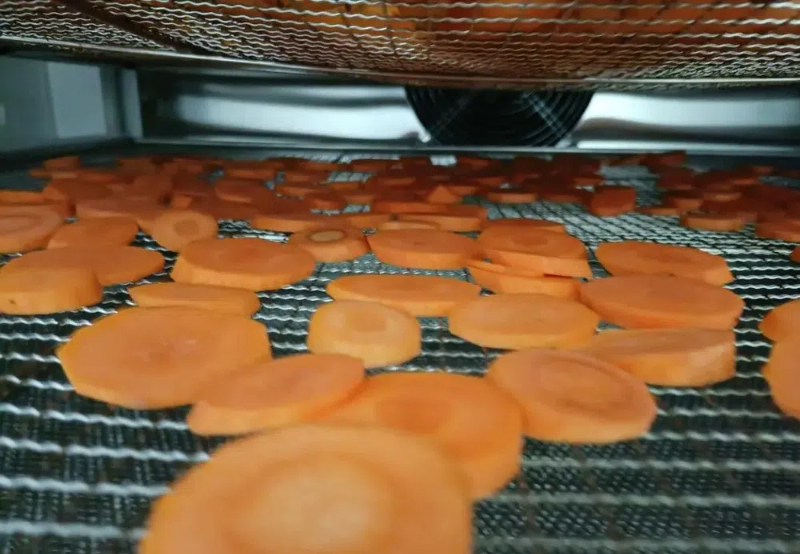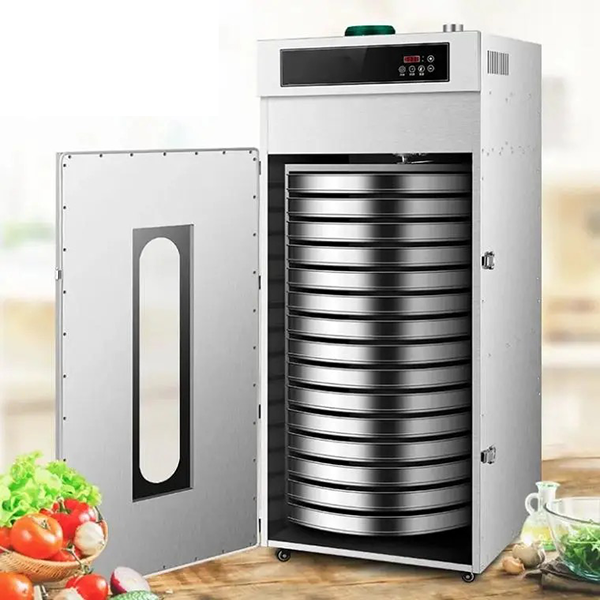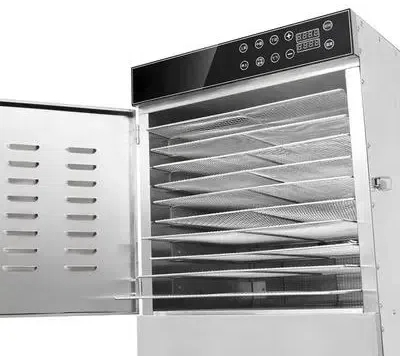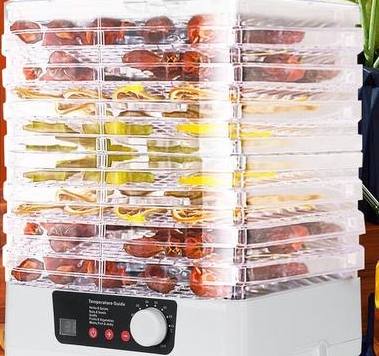
Content Menu
● Introduction
● Types of Food Drying Machines
>> Dehydrators
>> Heat Pump Dryers
● How Food Drying Machines Work
● Benefits of Using Food Drying Machines
>> Nutritional Preservation
>> Cost-Effectiveness
>> Convenience
● Choosing the Right Food Drying Machine
>> Capacity
>> Energy Efficiency
>> Features
● Applications of Food Drying Machines
>> Fruits
>> Vegetables
>> Herbs
>> Meats
● Maintenance and Care for Food Drying Machines
>> Cleaning
>> Storage
● Conclusion
● Frequently Asked Questions
>> 1. What types of foods can be dried using a food dehydrator?
>> 2. How long does it take to dry food in a dehydrator?
>> 3. Are food dehydrators energy-efficient?
>> 4. Can I use a food dehydrator for making jerky?
>> 5. How do I clean my food dehydrator?
Introduction
Food preservation is a crucial aspect of maintaining food quality and safety. Among various methods, drying is one of the oldest and most effective techniques. Food drying machines, such as dehydrators and heat pump dryers, have revolutionized this process, making it easier and more efficient. This article explores the different types of food drying machines, their benefits, and how to choose the right one for your needs.

Types of Food Drying Machines
Food drying machines come in various forms, each utilizing different technologies. The most common types include:
Dehydrators
These machines use low heat and airflow to remove moisture from food. They are ideal for drying fruits, vegetables, and herbs.
Heat Pump Dryers
These advanced machines use a heat pump to recycle hot air, making them energy-efficient and effective for larger batches of food.
Traditional methods, such as sun drying or air drying, are still used but can be less reliable due to environmental factors. Modern machines provide controlled conditions, ensuring consistent results.
How Food Drying Machines Work
The drying process involves removing moisture from food to inhibit the growth of bacteria, yeasts, and molds. Food drying machines typically operate by circulating warm air around the food, which evaporates moisture. The efficiency of this process depends on factors such as temperature, humidity, and airflow.
For instance, heat pump dryers operate at lower temperatures, which helps preserve the nutritional value of the food while still effectively removing moisture. This method is particularly beneficial for delicate items like herbs and fruits.

Benefits of Using Food Drying Machines
Investing in a food drying machine offers numerous advantages:
Nutritional Preservation
Drying helps retain vitamins and minerals that can be lost during cooking or canning.
Cost-Effectiveness
By drying surplus fruits and vegetables, you can reduce food waste and save money.
Convenience
Food drying machines allow for easy preparation of snacks and ingredients, making them a versatile addition to any kitchen.
Choosing the Right Food Drying Machine
When selecting a food drying machine, consider the following factors:
Capacity
Choose a machine that fits your needs, whether for home use or commercial purposes.
Energy Efficiency
Look for models that consume less power, especially if you plan to use them frequently.
Features
Some machines come with timers, temperature controls, and multiple trays, enhancing their usability.
Popular brands like Magic Mill and Excalibur offer a range of models catering to different needs and budgets.
Applications of Food Drying Machines
Food drying machines are suitable for both home and commercial use. They can effectively dry a variety of foods, including:
Fruits
Apples, bananas, and berries are popular choices for drying.
Vegetables
Carrots, tomatoes, and peppers can be dried for long-term storage.
Herbs
Basil, oregano, and thyme retain their flavor when dried properly.
Meats
Jerky is a favorite among many, and dehydrators can make this process simple.
Maintenance and Care for Food Drying Machines
To ensure longevity and optimal performance, regular maintenance is essential. Here are some tips:
Cleaning
Most dehydrators have removable trays that can be washed with warm soapy water. Avoid using abrasive cleaners that could damage the surfaces.
Storage
Store your machine in a dry place to prevent moisture buildup, which can lead to mold growth.
If you encounter issues, refer to the manufacturer's troubleshooting guide for assistance.
Conclusion
Food drying machines play a vital role in food preservation, offering a convenient and efficient way to extend the shelf life of various foods. By understanding the different types of machines available and their benefits, you can make an informed decision about which one best suits your needs. Whether for personal use or commercial applications, investing in a food drying machine can lead to healthier eating habits and reduced food waste.

Frequently Asked Questions
1. What types of foods can be dried using a food dehydrator?
Most fruits, vegetables, herbs, and meats can be dried effectively.
2. How long does it take to dry food in a dehydrator?
Drying times vary based on the type of food and the machine used, typically ranging from 4 to 12 hours.
3. Are food dehydrators energy-efficient?
Yes, many modern dehydrators are designed to be energy-efficient, using less power than traditional ovens.
4. Can I use a food dehydrator for making jerky?
Absolutely! Many dehydrators come with settings specifically for making jerky.
5. How do I clean my food dehydrator?
Most dehydrators have removable trays that can be washed with warm soapy water. Always refer to the manufacturer's instructions for specific cleaning guidelines.












